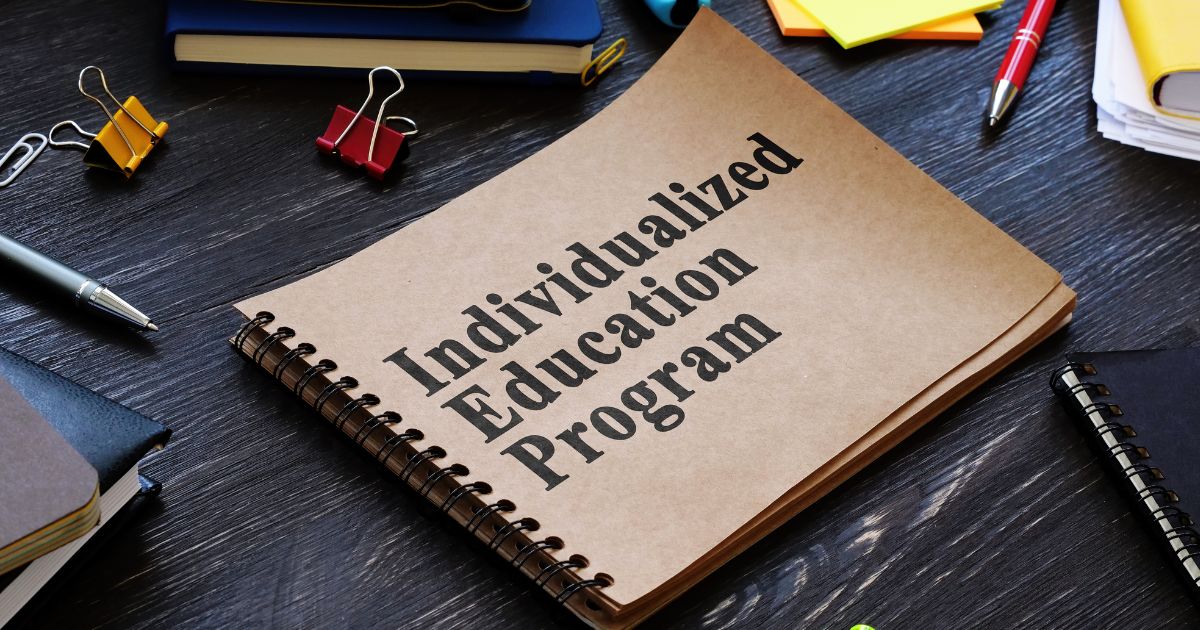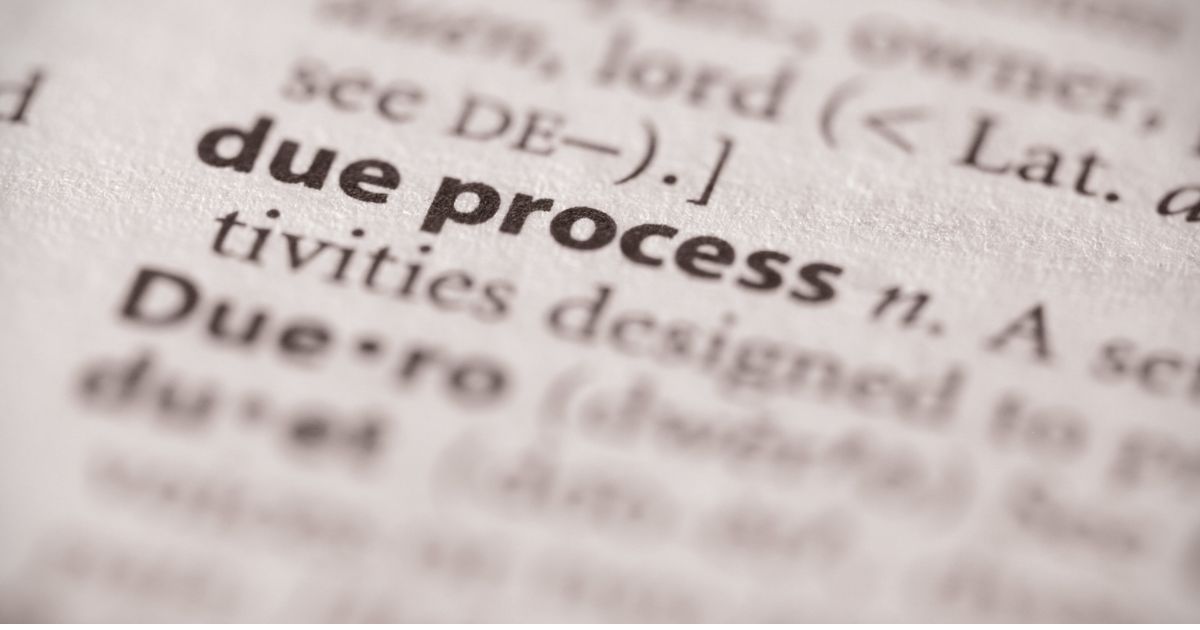Child Failing with an IEP: Do This
Your child has an IEP, but they're still failing in school. This unsettling situation likely brings a host of questions and concerns to mind. You're probably wondering, “What if there is no progress on IEP goals?” or “Do grades affect an IEP?” It's a challenging scenario that many parents find themselves navigating, often while juggling the complexities of education law, IEP meetings, and the special education services available within their school district.

The good news is that you're not alone. I'll offer you a simple, step-by-step guide that touches on the critical aspects of special education, learning disabilities, and Section 504, among other important topics.
My objective is to equip you with the tools you need to become an effective advocate for your child's unique needs and educational goals. Stay tuned for actionable advice to help you make informed decisions and advocate for your child.
Emotional First Aid: When Your Child Is Failing with an IEP
Finding out that your child is failing with an IEP can be a disheartening experience. The emotional toll it takes on parents is often underestimated, given that the whole point of an IEP (Individualized Education Plan) is to offer special education services tailored to your child's unique needs.
An IEP is more than a document—it's a commitment from the school district to help your child reach specific education goals. When that's not happening, the stress and frustration can be overwhelming.
Getting your emotional bearings is crucial before diving into the details of education law, IEP meetings, and Section 504.
Here are some immediate emotional coping strategies:
- Pause and Breathe: This sounds simple, but breathing deeply resets your nervous system and gives you a clearer perspective.
- Reach Out for Support: Sometimes, talking to another parent who's been through the IEP process can offer invaluable support. If you don’t know another parent, you are welcome to join my private Facebook group. I created this group to connect with other parents in the same situation.
- Write it Down: Journaling your feelings and concerns serves as a therapeutic exercise but also helps when you're ready to advocate for your child's needs.
- Stay Informed: Knowledge is power. Take some time to understand the intricacies of education services, the difference between an IEP and 504, and the Individuals with Disabilities Education Act (IDEA). Being well-versed in these areas will equip you to work more effectively with the IEP team.
- Self-Care: Remember, you're no good to anyone if you're burned out. Even amidst challenges like summer school and grade-level concerns, taking care of yourself is crucial.
Understanding the emotional aspects of having a child failing with an IEP will empower you to approach the practical components—like IEP meetings and advocating for specific learning disabilities—more effectively.
The road ahead might be long, but taking it one step at a time and equipping yourself emotionally will make all the difference.

Understanding the IEP: First Steps When Your Child Is Failing
When you discover your child is failing with an IEP, your first instinct might be to question the effectiveness of the special education services provided. While that's a valid concern, the initial practical step is closely examining your child's Individualized Education Plan (IEP).
Knowledge is the best tool for advocacy, and understanding the key components of the IEP equips you to navigate future IEP meetings and work collaboratively with the school district and the IEP team.
Key Components of an IEP:
- IEP Goals: These are the academic and functional goals that your child should be working towards. They provide the blueprint for making progress during the school year.
- Special Education Services: Details the type of support, accommodations, and specialized services your child will receive.
- Grade Level Standards: These general education guidelines provide context for a child's unique needs and learning disabilities.
- Assessment Methods: How progress will be measured for academic performance and life skills.
- Review Dates: Periodic IEP meetings are scheduled to review and possibly adjust the plan.
By familiarizing yourself with these elements, you become an empowered partner in your child's education. Knowing the educational law governing these services is crucial, especially when your child is failing with an IEP.
Both Section 504 of the Rehabilitation Act and the Individuals with Disabilities Education Act (IDEA) offer protections and specify what education services school districts must provide.
Before feeling overwhelmed, take a moment to understand the IEP thoroughly. This critical first step helps you identify needed changes and better prepares you to collaborate with school staff.

No Progress on IEP Goals? Here's What to Do
Discovering that your child is failing with an IEP is distressing, and when there's no progress on IEP goals, you may feel like you've hit a wall. Let's tackle the Google question head-on: “What if there is no progress on IEP goals?” There are specific, actionable steps you can take to address this concern.
Immediate Steps to Take for a Child Failing with IEP:
- Call an IEP Meeting: If the existing IEP goals aren't being met, convening an IEP meeting with the school district's IEP team is your first course of action. During this meeting, you can review your child's unique needs, what's working, and what isn't.
- External Evaluation: Sometimes, getting a second opinion from outside experts can offer valuable insights into learning disabilities or other factors hindering progress.
- Review Special Education Services: Assess whether the current services adequately address your child's needs. Is the support sufficient in class? Are educational tools and resources effective?
- Consult Education Law: Familiarize yourself with Section 504 and the Individuals with Disabilities Education Act (IDEA). Knowing your legal rights can empower you to advocate more forcefully.
- Engage in Parent Advocacy: Parents often underestimate their influence. Yet, parents have the final say and are their child’s best advocate. Work with other parents, join advocacy groups, and communicate consistently with teachers and the school district.
- Consider Summer School or Additional Support: If your child is falling behind grade level, it might be worth exploring summer school or additional tutoring services to catch up.
By following these steps, you're not just spotlighting the issue—you're chasing down solutions. The goal is to team up with the IEP crew to tweak your child's learning plan, ensuring the special ed services are customized to help your kid move forward.
The IEP-Grades Connection: What You Need to Know
One of the questions parents often ask when dealing with a child failing with an IEP is: “Do grades affect an IEP?” This is a critical question, and the answer is yes and no.
Grades are a measurement, not a determinant. Grades can serve as a general indicator of how your child is doing academically. Grades are signs pointing to areas where special education services might be needed or adjusted.
For example, if grades start to slide, it could be a sign that the IEP goals may need reevaluation, prompting an IEP meeting with the school district's IEP team.
However, grades are not the end-all, be-all. Many children with learning disabilities or unique needs might struggle with traditional grading metrics. Remember, an IEP is designed to help your child make progress in more ways than one. Life skills, social development, and other growth forms are also part of the equation.
Action Steps for When Your Child is Failing with an IEP:
- IEP Meeting: If you notice a grade-related issue, request an IEP meeting to reassess and potentially adjust the IEP goals and services.
- Review Education Law: Understanding Section 504 and the Individuals with Disabilities Education Act (IDEA) can give you a firmer grasp of how grades intersect with special education services.
- Consult with Teachers: Engage with your child's teacher to understand how grades affect their class performance and needs.
- Parent Advocacy: Sometimes, it's not just your child who needs to level up—you, too, in how you advocate. Understanding the link between grades and the IEP can boost your advocacy efforts.
So, while grades are an important measure, they should be considered alongside other factors like skill development, IEP goals, and emotional well-being.
Advocate for Your Child: Tips for When Your Child Is Failing with an IEP
When you find your child failing with an IEP, your role as a parent shifts into high gear. Being an effective advocate is not just about voicing concerns; it's about strategically navigating the system to ensure your child's unique needs are met.

Practical Advocacy Tips When Your Child is Failing with an IEP:
- Check Your State's IDEA Ranking: Every year, the U.S. Department of Education's Office of Special Education Programs (OSEP) evaluates how well each state or territory implements the Individuals with IDEA. Knowing how your state ranks can give you extra leverage in IEP meetings and discussions with the school district's IEP team.
- Gather Documentation: Maintain an organized file of all reports, grades, and other relevant information. This can be invaluable evidence when discussing your child's special education services and IEP goals.
- Keep a Communication Log: Whenever you talk to teachers, school administrators, or anyone involved in your child's education, note it. Document the date, the people involved, and the points discussed. This will help you keep track of ongoing issues and solutions, strengthening your advocacy efforts.
- Attend All IEP Meetings: Your presence is vital in these sessions. Come prepared with questions, concerns, and a clear understanding of what is and isn't working. Being an active participant empowers you to guide the discussions beneficially for your child.
- Seek External Support: If you find that your efforts within the school aren't making progress, consider seeking external advocacy support. There are many organizations dedicated to helping parents navigate special education services.
- Collaborate with Teachers: Building a solid relationship with your child's teacher can go a long way in understanding class dynamics, academic challenges, and the support your child needs to stop failing with their IEP.
Remember, you're not just a parent but the best advocate for your child. With knowledge, preparation, and effective communication, you can significantly influence the quality of your child's education and support.
Navigating the maze of special education services when your child fails with an IEP can feel overwhelming. Yet, taking the steps outlined in this guide can significantly improve your child's chances of progressing within the educational system.
We get it—you're not just navigating the maze of education law or sitting through another IEP meeting with your team. You're also doing the challenging but essential work of parenting a child with special needs.
As your partner in this journey, I invite you to subscribe for more insights and actionable advice tailored to the special needs community. Together, we are the most influential advocates for our children.






